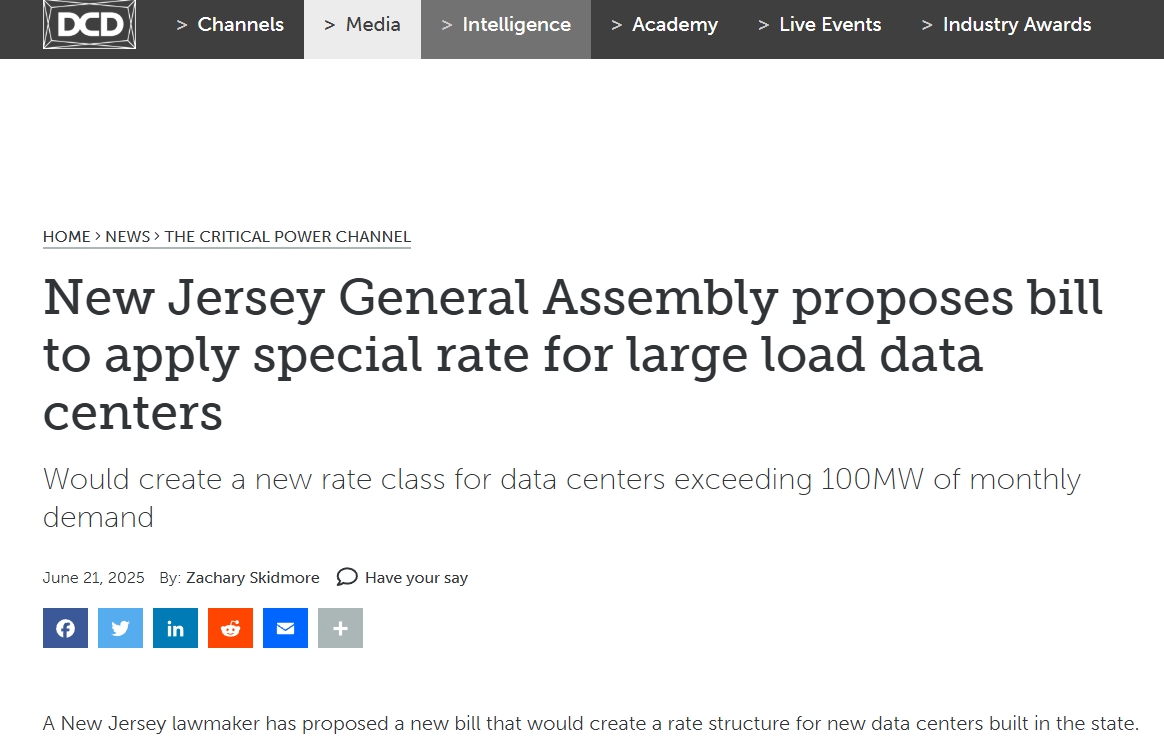Would create a new rate class for data centers exceeding 100MW of monthly demand
A New Jersey lawmaker has proposed a new bill that would create a rate structure for new data centers built in the state.
The bill, proposed by Democrat Assemblymen Dave Bailey and Joe Danielsen, would require electric public utilities in the state to develop and apply special rules for certain data centers to protect non-data center customers from increased costs.
The rules would apply to large load facilities that have or are projected to have a maximum monthly demand of at least 100MW.
The tariff aims to ensure not only that the costs of increased electricity demand doesn’t fall on other rate payers, but also aims to incentivize “data centers to develop and utilize methods to increase energy efficiency, including through the use of technologies that capture and utilize the heat produced by the large load data center.”
The bill states that “no later than 180 days after the effective date of this section, each electric public utility shall file an application with the Board of Public Utilities to establish a tariff for the provision of electricity to large load data centers.”
Following this, the utilities will have a year to deploy the tariff.
For the bill to pass, it must pass through both the Senate and the General Assembly before being signed into law by the Governor.
New Jersey is served by the PJM Interconnection grid, which has been struggling to meet growing demand from data centers across its footprint. According to Data Center Map, the state has 77 operational data centers. In March, AI data center developer Nebius announced plans to construct a 300MW data center in the state, with the first phase expected in summer 2025.
The bill has faced opposition from Republican lawmakers and industry lobby groups. Speaking to local reporters, Republican Assemblyman Christian Barranco said this bill looks good on paper, but doesn’t have much practical impact, because data centers are already dependent on their own power sources.
Responding to the bill, Ray Cantor, the deputy chief government affairs officer for the New Jersey Business & Industry Association, said: “Data centers are large energy users, but so are large manufacturers. So are large hospitals. What we need to do as a society, if we’re going to have economic growth, we need to make sure that we build the energy supply that we need.”
The bill follows several other similar proposed tariffs in other US states. Most recently, Oregon passed a bill to ensure data center customers pay the costs of the infrastructure required to power their installations.








